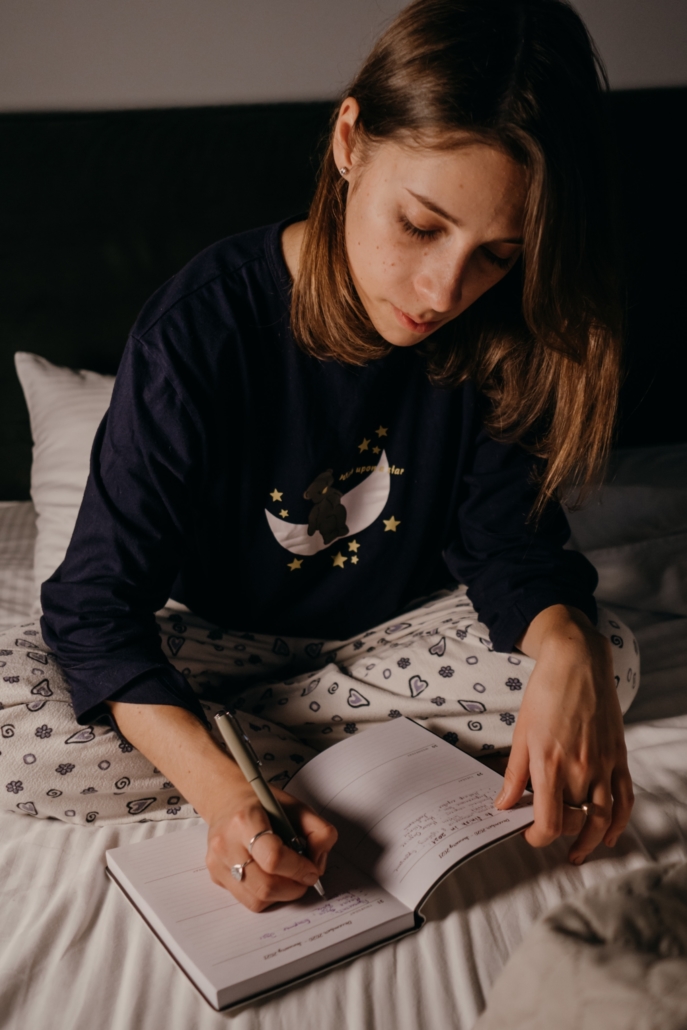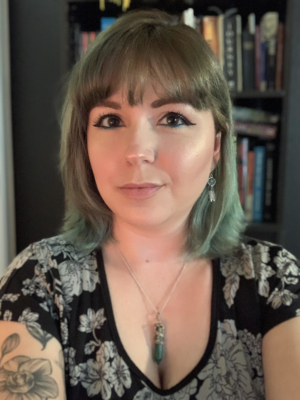Ecstasy Like Fire
 My old creative writing teacher leans his squat body against his desk, his girthy thighs splayed across the seat of his swivel chair. I’m sitting beside him in one of those plastic stand-alone chairs with metal legs that are inherent to schools, and I’m sporting tight clothes that don’t technically break the standardized dress code, though some teachers in the halls give me looks. The way we’re sitting, mere inches from one another, close enough to touch, feels uncomfortably familiar, but I push the thought from my mind.
My old creative writing teacher leans his squat body against his desk, his girthy thighs splayed across the seat of his swivel chair. I’m sitting beside him in one of those plastic stand-alone chairs with metal legs that are inherent to schools, and I’m sporting tight clothes that don’t technically break the standardized dress code, though some teachers in the halls give me looks. The way we’re sitting, mere inches from one another, close enough to touch, feels uncomfortably familiar, but I push the thought from my mind.
Mr. Booth has a free period now, and I either have lunch or early release. I’m a senior so the teachers don’t really care what I do in my spare time. No one’s keeping an eye on us. We’re alone in his classroom.
I hand Mr. Booth a folded, nearly blank sheet of paper. “Do you think it’s too inappropriate to submit to Epiphany?” I ask. As the only creative writing teacher, he also serves as editor-in-chief of the school’s literary magazine and has the final say for what can be published. Truthfully, I already know the answer.
He raises his eyebrows as he scans the open page. I wait for him to finish reading my poem.
DEAR GOD,
Sexual
Ambition
Verifies
Erosion.
Man’s
Erection
Freezes
Reality
Over
Me.
My
Youth
Seizes
Ecstasy
Like
Fire.
Mr. Booth sets the page — unfolded, words exposed — on his desk. He clears his throat and struggles to meet my gaze. “Are you having sex?” he wants to know.
Heat rises in my cheeks, but I nod. I wanted him to read it, so I could confess, in some way, my sins: I’m having an affair with a 22-year-old man, someone who is technically just two years younger than Mr. Booth himself, though the latter seems much older to me.
Mr. Booth was a kind of spiritual guide to me, once. I’m an Assembly of God Pentecostal Christian, so I’ve been taught that it’s my duty to use my gifts to bring others to Christ. All the assignments I turned in last year were biblical allegories or overtly religious. In one story, “Echoes in Oblivion,” a group of teenagers who committed suicide learn, one at a time, why what they did was sinful and why they’ll be spending eternity in hell. Mr. Booth revealed to me after reading that work that he was a Christian too, that he also thought it was important to save others. He wanted to help me.
Any time I had questions about God or the Bible — like, “If God loves us unconditionally, how can there be a hell? If there is no hell, what did Jesus die for?” — I’d go to him for answers. We’d discuss my work and its contents during class, and then eventually during lunch and after school.
Now, I watch for a sign of anger or disappointment in Mr. Booth’s eyes, but they’re veiled by the fluorescent lights reflected in his glasses.
He sighs gustily, his breath brushing my lips. He smells sour.
I’ve been this close to him once before.
***
It was finals week, during a period I didn’t have an exam to take and a period Mr. Booth didn’t have one to give. It was unlike me to overstudy. I brought a novel to read during my break.
“Why don’t I read to you?” Mr. Booth offered. “Since you seem to think that my reading voice sounds like—What did you call it?” He smirked, so I knew he remembered.
“Audible chocolate,” I obliged. I didn’t know that sexy was a finite state of being, that it was something you exuded intentionally, only with people you hoped to woo. I thought sexy was a personality trait, one to hone and polish and be, even without trying. Rather than focusing on attracting the right people, I hoped that the wrong people, people I trusted and looked up to, would ignore my flirtatious behavior.
I handed Mr. Booth my book, The Host by Stephanie Meyer, pleased to share this familial intimacy with him. My mom and I read books together just like this when I was growing up. I had begun to liken Mr. Booth to a paternal figure, a welcome substitute given that I had never known my father. I believed Mr. Booth felt the same; he was always hugging me after class, sometimes kissing me on the top of my head when the other students weren’t looking. It did make me uncomfortable, but I thought: This is what fathers do.
He beckoned me to sit behind his desk with him. As he read, I let my forehead rest on my folded arms. Soothed by Mr. Booth’s baritone voice, I breathed deeply, letting my hot breath fog the cool, black surface of his desk. If I were a little younger, I might draw pictures in the fading moisture with my fingertip, the way I would on bus windows on rainy days: little hearts, crooked stars, tic-tac-toe.
Lost in the story, I didn’t register his touch at first. Mr. Booth’s fingertips grazed my arm in small circles — repetitive, slow, deliberate. His fingers seemed to ask, Is this OK? Is this what you want?
I held my breath, calculating. What was it about his touch that suggested his intentions weren’t what I hoped? My best friend and I would stay up late during sleepovers, stroking each other’s arms just like this until one of us fell asleep. Nothing suggestive about it. So why then, when Mr. Booth touched me, could I no longer pretend that he saw me as his daughter?
I never let myself consider this possibility before, so I didn’t know what to do.
Stiffly, moving one vertebra at a time, I lifted my head from the desk. Mr. Booth’s fingers fell away as I pulled my hands to rest, limply, in my lap. I didn’t look at him, but I could see in my peripheral vision that he was looking at me, waiting.
The air conditioner roared.
“Mr. Booth?” said a girl, appearing abruptly in the open doorway. We both jumped. She needed guidance, she said, holding a sheet of paper in hand. Mr. Booth closed my book and slid it toward me. End of story.
“You should probably go study,” he said.
***
The unfolded poem on Mr. Booth’s desk twitches beneath the AC’s subtle breeze.
“Amanda, I think I should tell you,” Mr. Booth starts, leaning forward to glance at the open door, “that, last year, I developed some…” He looks down at his hands, his fingers locked together. “Feelings. For you.” Mr. Booth peers at me over his lenses.
Mr. Booth’s confession upstaged the one I had hoped to make. He’s jealous. I feel sick. I tell him, “I know.” Of course, I had known about his feelings for me. My tone is matter-of-fact, but my face is hot with shame. I thought we had made a silent, telepathic agreement that we wouldn’t discuss what had happened — or almost happened — that day and that, in not discussing it, we could undo it.
Mr. Booth sighs, considering this for a moment. This isn’t the response he wanted. “Well, thank you,” he finally says, “for not telling anyone.”
I shrug. “I knew that you could lose your job. I didn’t want that.” How could Mr. Booth go back to being my spiritual guide if he had gotten fired? Even with that conscious thought in my mind at the time, I had distanced myself from Mr. Booth over the last year. I had come to him today because I didn’t have anyone else to turn to. I emailed my youth pastor sometimes with questions I had about the bible, but I couldn’t see myself admitting that I was fornicating — worse, someone’s mistress. What if he had me kicked out of the drama club? What if my friends at church found out who I really was, a person I never wanted to become? I just want things to be the way they used to be, before I knew that Mr. Booth’s gaze was more possessive than protective.
I need him to hear about my affair, so he can tell me what to do. At church, I was taught that “faith without works is dead,” that being a Christian only in name was a sin in itself. How can I be a Christian and knowingly sin? Not just sin against God, but actively hurt someone else? I wanted to be Christ-like — and I wanted to be wanted. Was it possible to be both?
Mr. Booth nods, understanding but disappointed. Next year, after I graduate, I’ll find out he was fired and arrested for inappropriate behavior with three different students, that his relationship with me wasn’t as special as I thought it was. That I had trusted the wrong person, again. Today, he refolds my unanswered plea for help and extends the tiny square to me.
He says, “You’ll have to do some serious editing if you want me to publish that.”
Amanda Woodard is a queer poet, essayist and ghostwriter, as well as an MFA candidate at Antioch University. She studied Social Science and Journalism at the University of North Texas and attended writing workshops at the Mayborn Literary Nonfiction Conference and Writing Workshops Dallas. Her work has been performed in Oral Fixation and published in Ten Spurs, eris & eros, Cathexis Northwest Press, Button Eye Review, and more.





